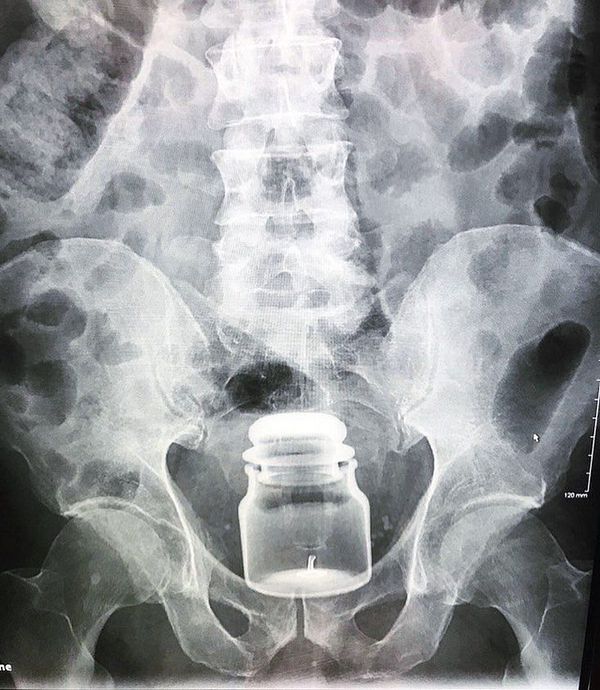Candle lodged in rectum
Rare case of foreign body – this patient came to the ER with a yankee candle lodged in his rectum!! Entrapped anorectal foreign bodies are being encountered more frequently in clinical practice. Many patient say they simply slipped and fell on the object.

Majority of cases are the result of insertion during erotic activity. Most objects are introduced through anus; however, sometimes, a foreign body is swallowed, passes thruogh the gastrointestinal tract, and is held up in the rectum. Numerous objects, including billy clubs, various fruits and vegetables, light bulbs, bottle, Impulse body spray cans, and turkey basters have been described as retained rectal foreign bodies. There is a wide variety of objects and variation in trauma caused to local tissues of the rectum and distal colon. One of the most common problems encountered in the management of rectal foreign bodies is the delay in presentation, as many patients are embarrassed and reluctant to seek medical care. Most of these patients present to the emergency room after efforts to remove the object at home. Moreover, in the emergency room, patients may often be less than truthful regarding the reason for their visit, leading to extensive workups and further delays. Even after extraction, delayed perforation of or significant bleeding from the rectum may occur. Hence, a stepwise approach that includes diagnosis, removal and postextraction evaluation is essential. Typical clinical findings of a rectal foreign body are pain with defecation, abdominal pain, rectal bleeding, pruritus, and constipation. Delays in seeking medical attention and multiple attempts at self-removal can lead to mucosal edema and muscular spasms, making removal of the object more difficult. Diagnosis is confirmed by plain abdominal radiographs and rectal examination. Manual extraction without anaesthesia is only possible for very low-lying objects. Patients with high- lying foreign bodies generally require general anaesthesia to achieve complete relaxation of the anal sphincter to facilitate extraction. Open surgery should be reserved only for patients with perforation, peritonitis, or impaction of the foreign body.